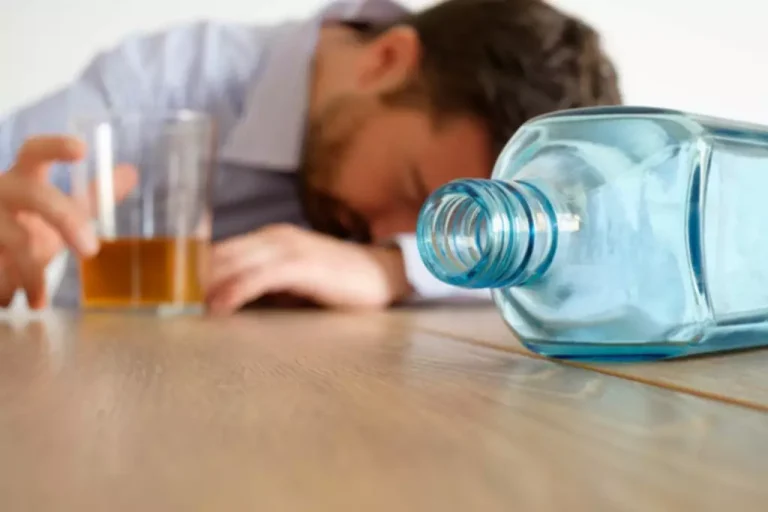
Hangover symptoms peak when blood alcohol concentration (BAC) hits zero, and they can last hangover shakes up to 24 hours after drinking. However, regardless of their intensity, hangover shakes can be a distressing symptom that can disrupt daily activities and cause significant discomfort. Alcohol is a diuretic, which means it increases urine production and can lead to dehydration.
- However, excessive alcohol consumption can overwhelm the liver’s capacity, leading to a buildup of acetaldehyde and other toxic byproducts in the bloodstream.
- Rest and recovery allow your body to heal and regain its balance, aiding in the alleviation of hangover symptoms 2.
- To effectively manage and mitigate the effects of hangover shakes, one must first comprehend what they are and the reasons behind their occurrence.
- These symptoms could indicate a more serious underlying health issue that requires medical attention 5.
Hydration for Hangover Relief
- Rehab Clinics Group operates several centres around the country, able to provide industry-leading addiction treatment.
- They are a physical sign of your body experiencing alcohol withdrawal symptoms – something everyone goes through after a night of heavy drinking.
- Opt for a meal that includes carbohydrates, healthy fats, and protein to provide sustained energy and help minimize alcohol’s effects.
- Alcohol is a depressant, which means it can slow the transmission of chemicals in the brain responsible for motor function, speech, decision-making and recalling events.
- If you’re experiencing confusion, hallucinations, a high fever, or seizures, seek immediate medical attention.
This can help mitigate the effects of alcohol on the body, including the onset of shakes. Experiencing hangover shakes can be a distressing aftermath of a night of heavy drinking. These shaking or trembling sensations are often accompanied by other unpleasant symptoms. Understanding the causes and treatments of hangover shakes is essential for alleviating discomfort and promoting recovery. A person can reduce their chance of hangover shakes by drinking less alcohol.

How to Cope with the Challenges of Early Recovery After Residential Treatment
It may also help to maintain hydration and stable blood sugar by consuming nonalcoholic drinks and food containing carbohydrates. Temporary changes to neurotransmitter activity are part of the reason some people experience hangover shakes. If the hangover shakes become severe or are accompanied by other concerning symptoms, it is crucial to seek medical advice. Severe symptoms may include confusion, chest pain, seizures, or hallucinations. These symptoms could indicate a more serious underlying health issue that requires medical attention 5. Alcohol is a diuretic, causing increased urine production and fluid loss from the body.
The Benefits of Cognitive Behavioral Therapy in Recovery

Either way, your body tells you that it was pushed past what it could do and needed to stop. Consider shakes and tremors your body’s way of warning you that you may be suffering from alcohol abuse and alcohol dependence, and it’s time to cut back or quit. If you are struggling to give up alcohol on your own, seek medical care at an addiction treatment centre. Another possible cause of alcohol shakes is neurology and the effect of alcohol on it. As the effects of alcohol wear off, the nervous system becomes more active, and a lot of information and stimulation is suddenly going through it.
The Dangers of Cocaine and Alcohol

This syndrome can manifest with various symptoms, including shaking and tremors. In severe cases, a condition called delirium tremens may develop, characterized by seizures and potential fatality Twelve-step program 2. In extreme cases, alcohol withdrawal can lead to a condition known as delirium tremens. It is often caused by reducing or stopping alcohol intake after a period of heavy drinking. Immediate medical care is necessary for individuals experiencing delirium tremens 2.
Understanding the Emotional Rollercoaster of Early Recovery
As the liver metabolizes alcohol, it produces acetaldehyde, a toxic compound known for causing inflammation and damage to the body. Additionally, alcohol increases urine output, leading to fluid loss and dehydration. Many people experience shakes and tremors when they’re hungover, but they’re unlikely to https://ecosoberhouse.com/ be the same from one person to the next. Besides alleviating shakes, damiana is also known to reduce alcohol cravings and enhance your mood. St. John’s Wort could also cause adverse side effects when combined with pharmaceutical antidepressants. These ingredients are carefully selected to assist in hydration, nutrient restoration, and detoxification, addressing hangover symptoms effectively.
Discussing Substance Use And Spring Break With Your College Kid
With more water and an electrolyte balance, your body can work more efficiently. Shaking and tremors are your body’s way of reacting to a disruption to its natural balance. Delirium tremens is a severe form of alcohol withdrawal that can be life-threatening.
Getting sufficient rest and sleep is essential for aiding the body’s recovery process. When we sleep, our bodies undergo repair and restoration, which is crucial for maintaining good health. However, alcohol consumption can disrupt the normal sleep cycle, resulting in poor sleep quality and fatigue. To ensure a speedy recovery, it is important to avoid alcohol or limit your intake as much as possible. Understanding the effects of alcohol on the nervous system provides insight into the causes of hangover tremors. It is important to note that individual experiences may vary, and not everyone who consumes alcohol will necessarily experience hangover tremors.
This can help counteract alcohol-induced dehydration and reduce the likelihood of experiencing hangover shakes. Staying hydrated throughout the night and replenishing fluids before bed can also minimize the severity of hangover symptoms. Understanding the causes of hangover shakes is crucial in managing and preventing them.
These factors collectively contribute to the symptoms of a hangover, including shakes. Alcohol consumption can also lead to low blood sugar levels, which play a significant role in the onset of hangover shakes. Alcohol inhibits glucose production in the liver and leads to a rapid drop in blood sugar levels. This drop can cause symptoms such as shakiness, weakness, fatigue, and confusion, which are often experienced during a hangover.
